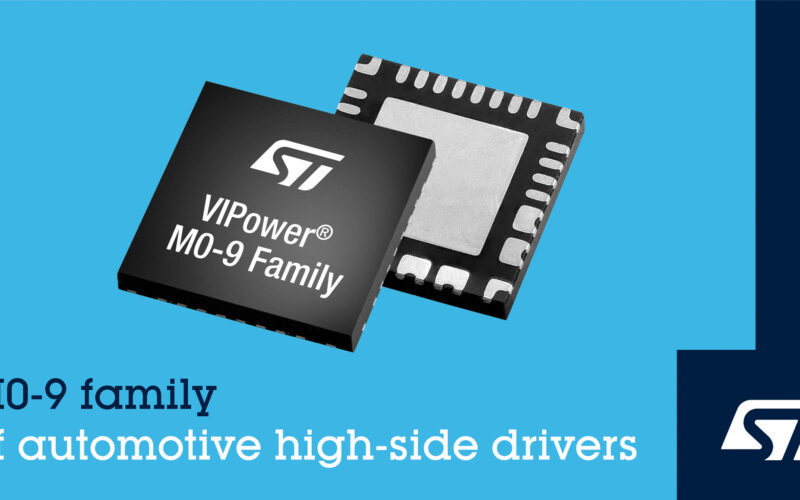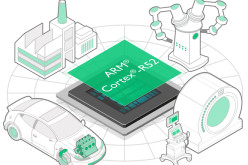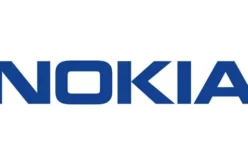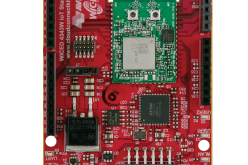STM Launches Highly Integrated Intelligent High-Side Drivers for Automotive Applications

The VN9D30Q100F and VN9D5D20FN from STMicroelectronics introduce a new generation of automotive intelligent switches, the first in the market with digital current sensing among the fully digital on-chip diagnostic features. Designed for high-side connection in applications powered from a 12V battery, the drivers simplify the hardware and software design of electronic control units (ECUs) and enhance system reliability.
The new devices leverage ST’s latest-generation of VIPower* M0-9 technology to combine an efficient 40V trench vertical MOSFET with 3.3V digital logic, and high-precision analogue circuitry in a 6mm x 6mm QFN package. Their compact dimensions and high integration save up to 40% of PCB area compared to the comparable driver ICs already in the market.
The VN9D30Q100F has two 33mW and two 90mW channels. The VN9D5D20FN has two 7.6mW and two 20mW channels. Each has up to six output channels and a 4-wire SPI interface, which reduces the number of microcontroller I/O pins needed to interact with the device. They also feature an integrated pulse-width modulation (PWM) generator with a resolution of 0.1% that provides a convenient and precise control signal at each output to handle functions such as lamp dimming.
The diagnostic circuitry has a continuously running analogue-to-digital converter (ADC) with 10-bit resolution and 5% precision to provide digital readings of the load current and case temperature, which eliminates reliance on an ADC in the host microcontroller. The ADC task manager is synchronized with the driver’s PWM engine, ensuring that diagnostics for each output channel is automatically performed in the appropriate time frame without microcontroller intervention. There are also two one-time programmable (OTP) inputs to manage the operation in limp-home mode if a system failure causes a loss of overall host-MCU control.
In addition to cutting hardware costs for customers by minimizing power dissipation and PCB-design complexity, these new devices simplify AUTOSAR compliance by providing a complex driver that operates independently from the application, thereby also easing software development.













